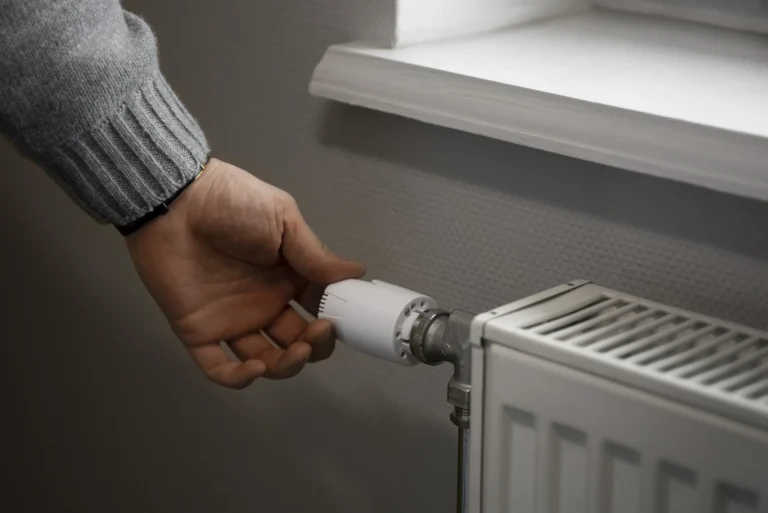What’s the Real Meaning Behind Your EPC Rating?
Let’s face it, most people see that colourful bar graph on their energy certificate and think, “Alright… but what does this actually mean?”
You’re not alone if you’ve ever wondered what the EPC rating means. In fact, thousands of UK homeowners and renters scroll right past it, not realising how much it could impact their energy bills, property value, and even their eligibility for free boiler grants.
That’s exactly why you need to understand how it works, what your rating says about your home, and what you can do about it today.
What Is an EPC Rating, Really?
An EPC, or Energy Performance Certificate, is a government-issued document that tells you how energy-efficient your home is. Think of it as your property’s energy report card.
Your EPC rating is a letter grade from A (most efficient) to G (least efficient). It estimates how much energy your property uses and how much it costs to run things like heating and lighting.
The lower your rating, the more energy your home wastes, and the more you’ll pay in bills.
Worried about your rating? Check if you’re eligible for a free upgrade through ECO4. Your EPC rating could qualify you for a brand-new boiler.
Why EPC Ratings Matter (More Than You Think)
- For renters and buyers: Landlords legally need to meet a minimum EPC rating of E to rent out a property in England and Wales.
- For sellers: If you’re putting your house on the market, your EPC is required by law.
- For bill-payers: A lower rating = higher bills. It’s that simple.
- For Grant, Many government schemes (including ECO4) use your EPC rating as a key part of eligibility.
So, understanding and improving your EPC rating isn’t just smart, it’s essential.
Get your free downloadable EPC guide for free here —>
EPC Rating Meaning Explained in Full
So what’s measured? Your EPC is based on a government-standardised method that considers:
- The construction of your home (walls, roof, insulation)
- The type of heating system you use and its efficiency
- Windows and glazing quality
- Use of renewable energy sources
- Lighting types (LED vs. incandescent)
A certified assessor evaluates your property and uses software approved by the UK government to generate your EPC.
Where Can You Check Your EPC Rating?
The easiest and most authentic way is to visit the official EPC register. Just enter your postcode and you’ll find:
- Your current rating
- Recommendations for improvement
- The certificate number and assessor details
Define EPC Rating in Simple Terms
Still unsure how to define EPC rating? Think of it like this:
It’s a grade that shows how energy efficient your home is, how much it costs to run, and what steps you can take to save money.
If your rating is low (D to G), it means heat escapes too easily, and you’re likely overpaying on your bills. Improving it can also increase your property’s value and comfort levels.
Want to dive deeper into how your EPC affects ECO4? Read our full ECO4 guide
EPC Ratings Checker Tools and Services
Beyond the GOV.UK site, you can also get a free EPC survey through Heatcore if you’re applying for Grant or home upgrades. We’ll send a qualified assessor to check your rating.
If you’re eligible for the ECO4 scheme, this comes at no cost to you.
Not sure where to start? Talk to Heatcore—we’ll handle your EPC check and guide you through the rest.
How EPC Ratings Are Calculated
Here’s how it works:
- A certified assessor visits your home and measures everything from insulation to heating systems.
- They enter the data into approved software.
- The software applies the government method known as SAP (Standard Assessment Procedure) to rate your property.
- You get a rating from A to G, plus a list of recommended energy improvements.
These improvements could include better insulation, a new boiler, energy-saving light bulbs, or even solar panels.
You’ll also see:
- The potential rating after improvements
- Estimated savings on energy bills
- Environmental impact
Document Needed: You don’t need to do anything except book the visit. No paperwork required upfront unless you’re applying through an ECO4 scheme.
How to Improve Your EPC Rating
If your EPC is below a C, you’ve got room to improve, and doing so could unlock Grant and future savings.
Top ways to boost your EPC:
- Install or upgrade insulation (loft, cavity wall, underfloor)
- Replace an old boiler with an A-rated condensing one
- Switch to smart heating controls
- Upgrade windows and doors
- Use LED lighting throughout
Some of these upgrades can cost thousands—unless you qualify for ECO4 support, which covers these costs for eligible homes.
Apply now with Heatcore before Grant runs out—slots are limited.
What If I’m Renting?
Good question! Here’s the breakdown:
- If you’re renting, your landlord must ensure the EPC is at least an E rating.
- If it’s below E, it’s illegal to rent the property unless they’ve registered an exemption.
- If you’re eligible for ECO4 and have landlord permission, you may still qualify for upgrades like a new boiler.
Common Misconceptions About EPC Ratings
“It’s just a formality.”
Not true, your EPC rating can affect everything from mortgage options to grant eligibility.
“My house is old, so I can’t improve it.”
Wrong! ECO4 focuses on improving older homes, especially those with low EPCs.
“I need to pay for an EPC to apply for help.”
Nope, many schemes initiated by well-known companies like Heatcore has clear processes designed to cater that. For example the ECO4 scheme that offers an absolutely free EPC survey.
Wrapping Up: Why EPC Ratings Deserve Your Attention
Let’s circle back to our main question: What is the EPC rating meaning, and why does it matter?
It means knowing how your home performs, how much you’re wasting (or saving), and what steps you can take to fix it, often at zero cost if you act quickly.
This isn’t just about energy. It’s about warmth, comfort, money, and peace of mind.
Apply now or contact our team to check your EPC and unlock home upgrades.
Because empowering comfort and saving energy starts with knowing your EPC.




